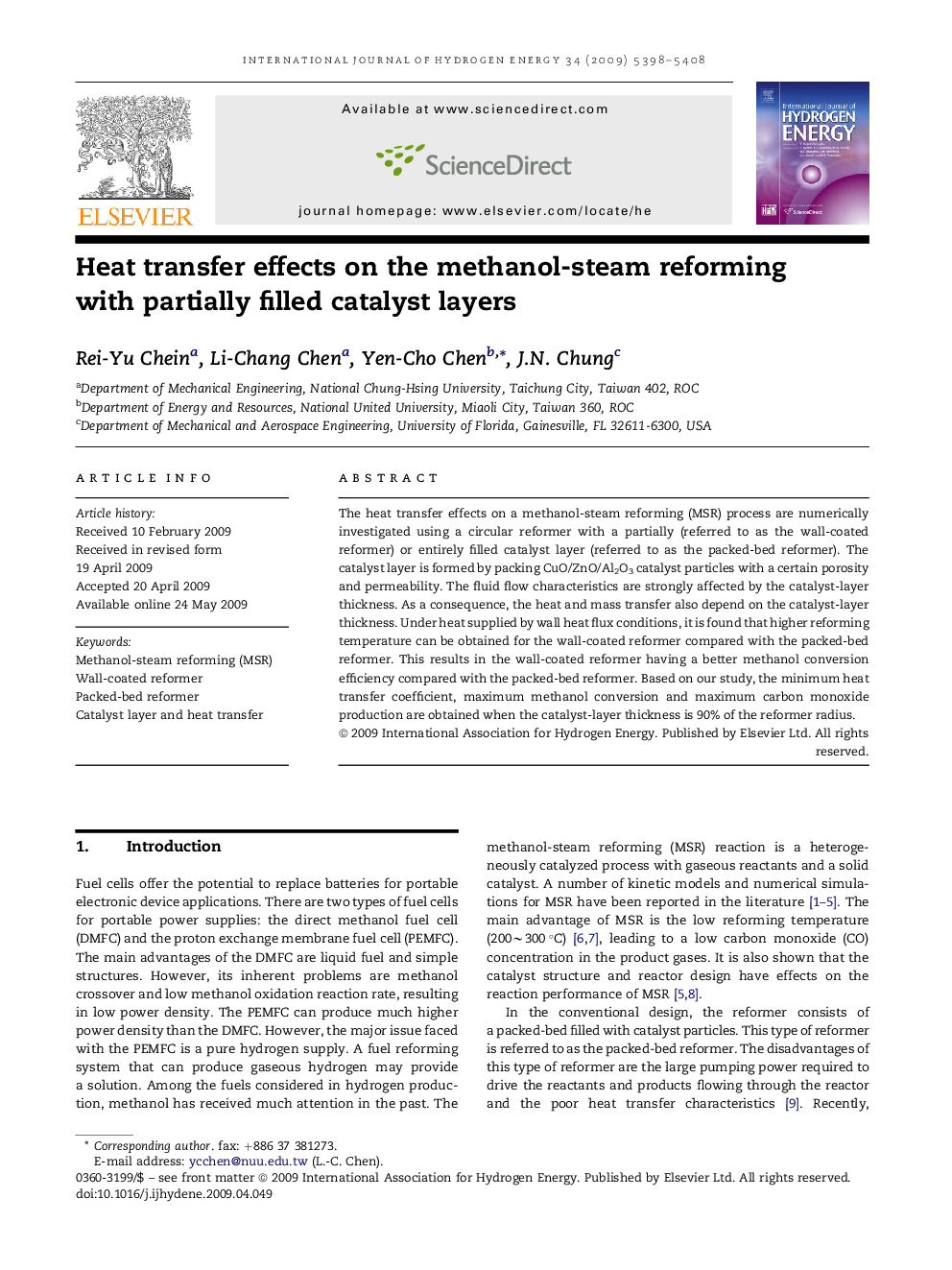| Article ID | Journal | Published Year | Pages | File Type |
|---|---|---|---|---|
| 1283188 | International Journal of Hydrogen Energy | 2009 | 11 Pages |
The heat transfer effects on a methanol-steam reforming (MSR) process are numerically investigated using a circular reformer with a partially (referred to as the wall-coated reformer) or entirely filled catalyst layer (referred to as the packed-bed reformer). The catalyst layer is formed by packing CuO/ZnO/Al2O3 catalyst particles with a certain porosity and permeability. The fluid flow characteristics are strongly affected by the catalyst-layer thickness. As a consequence, the heat and mass transfer also depend on the catalyst-layer thickness. Under heat supplied by wall heat flux conditions, it is found that higher reforming temperature can be obtained for the wall-coated reformer compared with the packed-bed reformer. This results in the wall-coated reformer having a better methanol conversion efficiency compared with the packed-bed reformer. Based on our study, the minimum heat transfer coefficient, maximum methanol conversion and maximum carbon monoxide production are obtained when the catalyst-layer thickness is 90% of the reformer radius.
